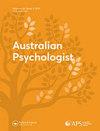Enhancing fathers’ engagement in parenting programs: identifying preferred program attributes
IF 2
4区 心理学
Q2 PSYCHOLOGY, MULTIDISCIPLINARY
引用次数: 0
Abstract
ABSTRACT Objective Despite parenting programs providing benefits to parents and children, fathers enrol five times less often than mothers and dropout at higher rates. To better understand how to encourage father engagement, this study asked 55 Australian fathers about their preferences regarding six attributes of parenting programs: content; delivery method; participants; facilitator gender; program duration; and cost. Method Participants were asked to complete an online experiment indicating the best and worst options presented within each attribute (e.g., comparing a parenting program delivered face-to-face, through zoom, online, via an app, or SMS-based). Results Fathers showed a strong preference for a program that included child-focused activities rather than parenting-partner-focused activities. Delivering the program via SMS was the least preferred delivery method, but there were no strong preferences around who participated in the program or the facilitator gender. There was a strong preference for a one- to two-month duration and a no, or low-cost program. Conclusions These findings provide the first step towards developing father-focused parenting programs containing attributes that encourage father engagement. Key Points What is already known about this topic: (1) Childhood mental health problems are at alarming levels in Australia with around 1 in 8 children experiencing externalising or internalising behaviour problems. (2) Parenting programs are an effective method of addressing childhood behaviour problems. (3) Fathers enrol in parenting programs 5 times less often and have higher dropout rates than mothers. What this paper adds: (1) Fathers have a strong preference for parenting programs that focus on activities to do with their child, that run for 4-8 weeks, and are free or low-cost. (2) Fathers do not have strong preferences around who they complete a parenting program with, or who facilitates the program. (3) These findings provide the first step towards developing father-focused parenting programs.加强父亲参与育儿计划:确定首选计划属性
摘要目的尽管育儿计划为父母和孩子提供了福利,但父亲入学的频率是母亲的五倍,辍学率更高。为了更好地了解如何鼓励父亲参与,这项研究询问了55位澳大利亚父亲对育儿计划六个属性的偏好:内容;交付方式;参与者;促进者性别;项目工期;以及成本。方法参与者被要求完成一项在线实验,指出每个属性中的最佳和最差选项(例如,比较面对面、通过缩放、在线、通过应用程序或基于短信的育儿计划)。结果父亲们表现出强烈的偏好,包括以儿童为中心的活动,而不是以父母为中心的伙伴活动。通过短信传递计划是最不受欢迎的传递方式,但对参与计划的人或主持人的性别没有强烈的偏好。人们强烈倾向于一到两个月的持续时间和无成本或低成本的计划。结论这些发现为制定以父亲为中心的育儿计划迈出了第一步,该计划包含鼓励父亲参与的属性。关键点关于这个话题的已知情况:(1)澳大利亚儿童的心理健康问题达到了惊人的水平,大约八分之一的儿童经历了外在或内在的行为问题。(2) 育儿计划是解决儿童行为问题的有效方法。(3) 父亲参加育儿计划的次数是母亲的5倍,辍学率也比母亲高。这篇论文补充道:(1)父亲们非常喜欢育儿计划,这些计划侧重于与孩子有关的活动,为期4-8周,免费或低成本。(2) 父亲们对与谁一起完成育儿计划或谁为该计划提供便利没有强烈的偏好。(3) 这些发现为制定以父亲为中心的育儿计划迈出了第一步。
本文章由计算机程序翻译,如有差异,请以英文原文为准。
求助全文
约1分钟内获得全文
求助全文
来源期刊

Australian Psychologist
PSYCHOLOGY, MULTIDISCIPLINARY-
CiteScore
3.70
自引率
5.30%
发文量
32
期刊介绍:
The Australian Psychologist is the official applied practice and public policy journal of the Australian Psychological Society. As such, the journal solicits articles covering current issues in psychology, the science and practice of psychology, and psychology"s contribution to public policy, with particular emphasis on the Australian context. Periodically, Australian Psychological Society documents, including but not limited to, position papers, reports of the Society, ethics information, surveys of the membership, announcements, and selected award addresses may appear in the journal.
 求助内容:
求助内容: 应助结果提醒方式:
应助结果提醒方式:


